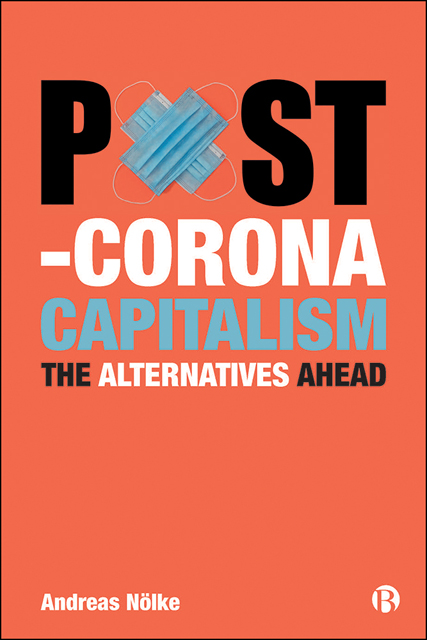Book contents
- Frontmatter
- Dedication
- Contents
- List of Abbreviations
- Acknowledgements
- Preface
- 1 Introduction: Confronting a Multidimensional Crisis of Capitalism
- Part I Capitalism and Society
- Part II Domestic Institutions of Capitalism on the Demand Side
- Part III Domestic Institutions of Capitalism on the Supply Side
- Part IV The International Institutions of Capitalism
- Part V Anthropocene Capitalism
- Part VI Geo-economic Shifts in Global Capitalism
- Part VII Ideologies in Contemporary Capitalism
- References
- Index
3 - Welfare State: Restoration or Universal Basic Income?
Published online by Cambridge University Press: 13 October 2022
- Frontmatter
- Dedication
- Contents
- List of Abbreviations
- Acknowledgements
- Preface
- 1 Introduction: Confronting a Multidimensional Crisis of Capitalism
- Part I Capitalism and Society
- Part II Domestic Institutions of Capitalism on the Demand Side
- Part III Domestic Institutions of Capitalism on the Supply Side
- Part IV The International Institutions of Capitalism
- Part V Anthropocene Capitalism
- Part VI Geo-economic Shifts in Global Capitalism
- Part VII Ideologies in Contemporary Capitalism
- References
- Index
Summary
The burden of the coronavirus crisis did not distribute evenly: the pandemic harmed some groups more than others (see Chapter 7). How did the welfare state cater for the most severely affected victims of the crisis? Did some welfare states fare better than others? At the same time, the widespread loss of work during the pandemic has led to renewed calls for a replacement of the traditional welfare state by a universal basic income, as a simple and safe form of social security. Will this become the social cushion in post-corona capitalism or will we restore the welfare state?
Welfare states in Comparative Political Economy
The study of the welfare state ranges among the most widely established topics in Comparative Political Economy (Clift, 2014: 257–8; Menz, 2017: 217–40; Vermeiren, 2021: 90–117). The simply typology of three basic ideal types of welfare capitalism in the Global North as developed by Esping-Andersen is still a useful point of departure, even if individual countries often do not fit neatly into one type. According to his typology, the three types of welfare state differ considerably in their degree of decommodification; that is, the extent to which people are able to ‘maintain a livelihood without the reliance on the market’ (1990: 21–2). They also differ in their degree of social stratification; that is, whether income inequality is high or low.
The highest degree of decommodification is to be found in the Scandinavian Social Democratic ideal type. If people become unemployed in the latter tax-based system, the state offers not only an adequate level of compensation, but also generous training and skill development, in order to be reintegrated in the labour market fairly quickly. A high level of decommodification – also supported by strong protection against dismissal – goes hand in hand with a low level of income stratification, given that it provides labour with a good bargaining position versus capital. Much employment is provided by the public sector; for example, in the education and health systems, historically important labour markets for women (Menz, 2017: 208).
The Continental European Conservative (or Bismarck) ideal type provides a medium level of decommodification and leads to a much higher level of social stratification.
- Type
- Chapter
- Information
- Post-Corona CapitalismThe Alternatives Ahead, pp. 18 - 23Publisher: Bristol University PressPrint publication year: 2022



